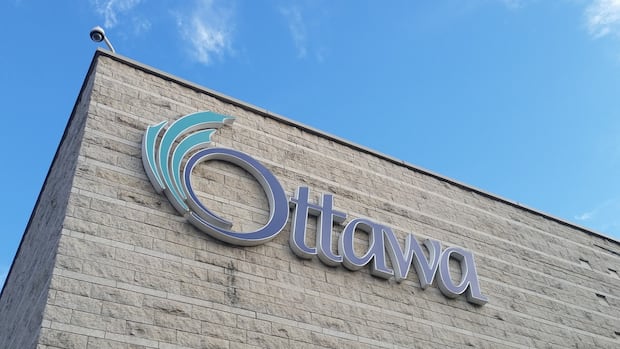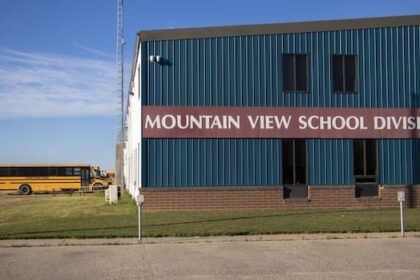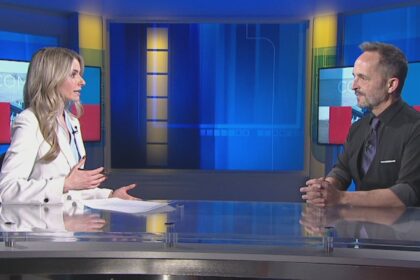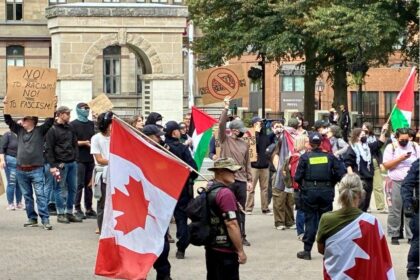Ottawa·NewProperty tax isn’t the only thing going up if Ottawa’s proposed 2026 budget passes, as the city looks to hike a long list of rates and fees to keep up with cost pressures. Hikes to transit fares and taxes are just the beginning, as the city increases a long list of feesListen to this articleEstimated 6 minutesThe audio version of this article is generated by text-to-speech, a technology based on artificial intelligence.A long list of fees are set to rise if Ottawa city council passes the 2026 draft budget. (Jean-Sebastien Marier/CBC)Property tax isn’t the only thing going up if Ottawa’s proposed 2026 budget passes, as the city looks to hike a long list of rates and fees to keep up with cost pressures. The proposed 3.75 per cent hike to property taxes will add up to an extra $166 for the average urban homeowner. Rates for water, sewer and stormwater are going up 4.5 per cent, which will cost a typical user $47.30. Garbage fees will increase 10 per cent, adding up to an extra $24 annually.Transit fees are set to go up by 2.5 per cent on average, though the precise increases vary slightly between different kinds of passes and tickets.Adult single-ride fares rise from $4.00 to $4.10 if paid by card.Adult monthly passes rise from $135 to $138.50.Senior monthly passes rise from $58.25 to $59.75.One-day passes rise from $12.00 to $12.25.Seven-day passes rise from $56.75 to $58.00.The cost of monthly Equipass and Community passes remains unchanged.The municipal accommodation tax charged to hotel guests will rise a full percentage point, from five per cent to six per cent, as part of the city’s plan to fund the Lansdowne Park redevelopment.Most other fees are rising somewhere in the range of three per cent or slightly more, though there are exceptions. The city says those increases are meant to recover the higher cost of providing those services.RecreationMost recreation fees will rise three per cent. The cost for adults to rent an arena for one hour will increase from $341.67 to $351.75, for example. For minors, it will rise from $204.81 to $210.85.The cost of renting other recreation facilities such as sports fields, tennis courts, basketball courts and ball diamonds varies widely depending on where they’re located and who is renting them. But most of those fees will also rise three per cent.The fee for public swims and public skating will increase by about three per cent, as will the cost of museum admission and day camps.Ice time at a municipal rink is about to cost more, along with other recreation fees. (Matthew Kupfer/CBC)ParkingThe budget makes no changes to maximum on-street parking rates, though rates for specific areas can still change according to the city’s new demand-based pricing model.The annual fee for a residential parking permit increases 2.9 per cent, from $770 to $792.The maximum rates for city-owned parking garages will increase more sharply, with maximum hourly rates jumping 23 per cent to $8, while daily limits rise four per cent to $26. The cost of a monthly parking pass will rise 5.8 per cent to $275.Public safetyParamedics are increasing their fees by about 3.3 per cent on average. It will cost more for a two-day first aid course, as the price of a standard certification rises from $150.50 to $155.40.The cost of open-air fire permits will go up a dollar, from $15 to $16.One area where residents will get a break is animal control: Pet registration fees remain unchanged, as do the costs at the spay and neuter clinic.Bars and restaurants in Ottawa will pay more in patio fees, but the proposed increase isn’t as sharp as in previous years. (Jacques Corriveau/CBC)Bylaw and business licensing The city is also increasing prices on the long list of permits and licenses it issues. Most will also require an additional application processing fee, which will increase by 8.3 per cent, from $60 to $65 in 2026.Here are some examples of business licences that are increasing for next year:Food premise licences rise from $226 to $233.Pet shop licences rise from $127 to $131.Snow plow contractor licences rise from $381 to $393.Body rub parlour licences rise from $1,467 to $1,514.Tobacco and vape product vendor licences rise from $953 to $983.Rickshaw operator licences rise from $55 to $57.All-night dance event licences rise from $340 to $351.Exotic animal entertainment licenses (needed for circuses) rise from $304 to $314.The cost of food cart licences varies widely depending the duration of the licence and where the vehicle operates. In general, those costs are rising by a bit more than three per cent.Fees for taxicab drivers will remain unchanged, though taxicab brokers and plate holders will see costs increase by a bit more than three per cent on average.Outdoor patio fees, which rose sharply in the previous budget, will now increase at a more modest 3.6 per cent for 2026.Heftier fee hikesA few fees are going up by substantially more.The application fee for a permit to remove a “distinctive tree,” meaning one that exceeds a certain width, increases 7.5 per cent from $186 to $200. The fee, and the increase, is even higher if development is taking place.A wide range of fees charged by the city’s revenue department will also rise steeply, including:Refund processing fees rise by 29.4 per cent from $34 to $44.Deferral program application fees rise 10.4 per cent from $164 to $181.Returned cheque fees and fees to recover overpayments will increase 5.5 per cent from $55 to $58.New account fees and charges for reminder notices will rise more modestly, generally in line with other fees. Still other revenue department fees will remain unchanged, like those charged for tax and water certificates, as well as later declaration fees for the vacant unit tax.Developers will pay more to get their projects approved at council’s planning and housing committee. Most application fees, some of which cost tens of thousands of dollars, will rise 8.8 per cent. Legal fees for planning applications will rise 6.6 per cent.However, the city is moving to pare back or defer some costs borne by developers as part of the housing acceleration plan passed by council this fall.ABOUT THE AUTHORArthur White-Crummey is a reporter at CBC Ottawa. He has previously worked as a reporter in Saskatchewan covering the courts, city hall and the provincial legislature. You can reach him at arthur.white-crummey@cbc.ca.
Thursday, 5 Mar 2026
Canada – The Illusion
Search
Have an existing account?
Sign In
© 2022 Foxiz News Network. Ruby Design Company. All Rights Reserved.
You May also Like
- More News:
- history
- Standing Bear Network
- John Gonzalez
- ᐊᔭᐦᑊ ayahp — It happened
- Creation
- Beneath the Water
- Olympic gold medal
- Jim Thorpe
- type O blood
- the bringer of life
- Raven
- Wás’agi
- NoiseCat
- 'Sugarcane'
- The rivers still sing
- ᑲᓂᐸᐏᐟ ᒪᐢᑿ
- ᐅᑳᐤ okâw — We remember
- ᐊᓂᓈᐯᐃᐧᐣ aninâpêwin — Truth
- This is what it means to be human.
- Nokoma











